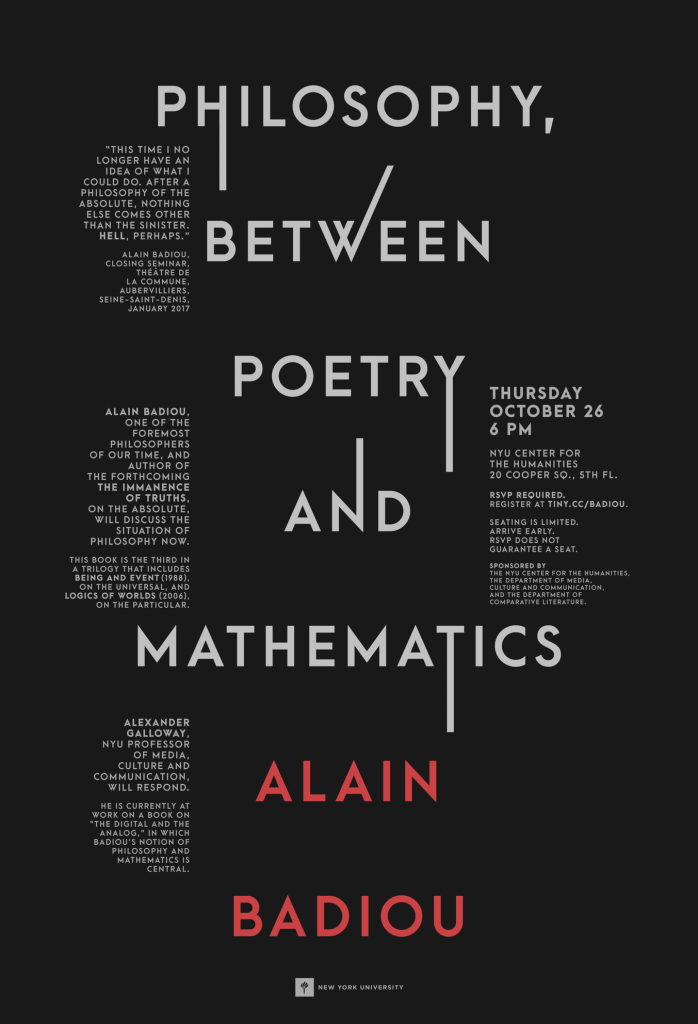What would it mean to provide a theory of media? In contemporary discourse, terms like mass media, social media, visual media, or digital media are used quite freely. Commentators like to claim that we live in a media age, an observation whose very banality too often undercuts its potential utility. It will be worth while to pause for a moment and review the three most common ways of thinking about media, media as substance, media as structure, and media as logic.
The first answer to the question of media is found in the concept of substance. Under the Substance Model of media, the word “media” means medium or carrier. Here we find the great discussions around technology, around things like paper, paperwork, copper wire, signals, artifacts, archives, nodes, devices, what in Plato are called the hypomnemata (ὑπομνήματα), the so-called memory extenders, or the “extensions” of man. The Substance Model typically categorizes media in terms of artifacts or objects. Indeed, a number of contemporary media scholars describe themselves as archeologists, as performing media archeology. Here “middle” is understood in a strictly physical and material sense, as means, go-between, intermediary, the actual materiality of the thing being mediated. The Substance Model focuses on the gut, the meat, the flesh, the body, bodies as such. The Substance Model thingifies the world, turning everything into genetic elements and carrier channels. Something of a pre-Socratic view resurfaces here. Medium thinkers ask questions like “what is the elemental substance?” Pre-Socratic, this approach is Aristotelian as well. Recall Aristotle, great thinker of the mean (the midway, the middle), that great cataloger of matter into classifiable things. Even seemingly immaterial topics like politics or ontology were relevant to Aristotle because he found a way to itemize and articulate them as things, just like the animals of the field or the clouds in the sky. Continue reading


